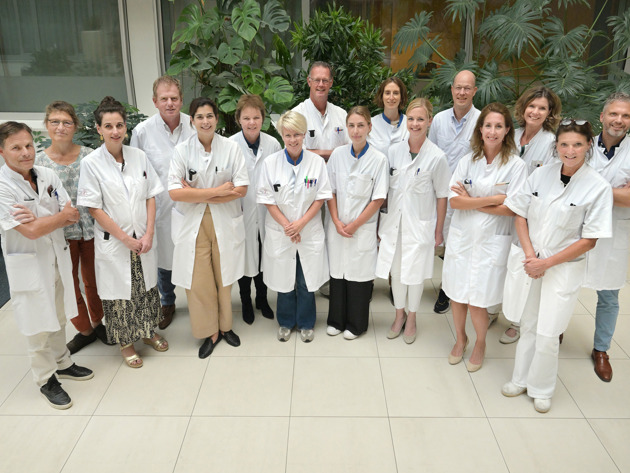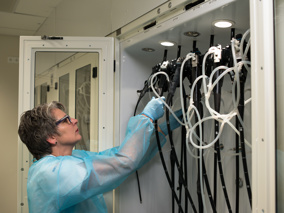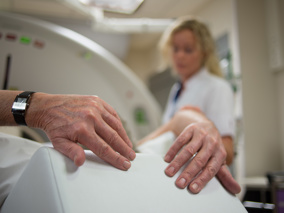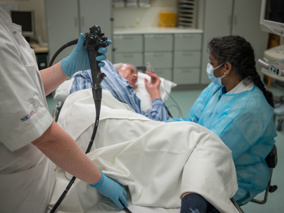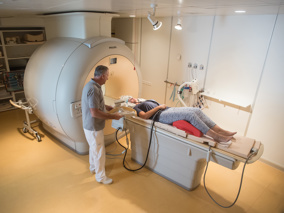Gastrointestinal stromal cell tumor (GIST)
A gastrointestinal stromal cell tumor (GIST) is a rare tumor in the gastrointestinal tract. This tumor does not start in the mucosa, as in esophageal, stomach and colon cancer. GIST grows in the connective tissue layer and muscle layer of an organ. GIST belongs to a group of tumors called sarcomas . These are tumors in the soft tissues of the body. GIST is rare. Of all tumors in the gastrointestinal tract, 2% is a GIST. Yet GIST is the most common sarcoma.
On this page you can read more about the symptoms, examinations and treatment of gastrointestinal stromal cell tumors (GIST).
Read more about GIST
Causes of GIST
GIST is caused by a change in the genetic makeup of a cell. That cell is located in the muscle layer of the gastrointestinal tract. This change causes the cell to divide quickly and uncontrollably. This creates a tumor: GIST. Yeasts can occur throughout the gastrointestinal tract. They usually occur in the stomach.
- stomach: 50-60%
- Small intestine: 20-30%
- rectum: 10%
- colon: 5%
- Esophagus: 5%
Every year, about 1.5 out of every 100,000 people get GIST. In the Netherlands, that is about 250 people a year.
In most people, GIST develops without a clear cause. There are no known risk factors. In a small group of patients, about 5%, GIST is caused by an underlying genetic disorder.
Symptoms of GIST
A smaller tumor (smaller than 2 cm) often does not cause any symptoms. This is usually found by chance during an examination for another reason. Larger tumors can cause specific symptoms. The symptoms are usually due to the size of the tumor or to bleeding.
Complaints due to the size of the tumor may include:
- bellyache
- nausea
- problems with bowel movements
- difficulty eating
- a swelling in the abdomen
If there is bleeding, you may see blood in your stool or vomit. Sometimes you notice it in symptoms of anemia, such as fatigue.
Clinical Trials
Five specialized hospitals in the Netherlands work together in the field of GIST. This collaboration is called the Dutch GIST Consortium. The five hospitals are: the Netherlands Cancer Institute, Erasmus MC, Radboud UMC, UMC Groningen and Leiden UMC. Medical specialists from different fields (including pathologist, radiologist, surgeon and medical oncologist) meet regularly. They evaluate national guidelines and discuss new studies and research results. They use a database with data from GIST patients. This information helps to provide better care
 nl
nl
